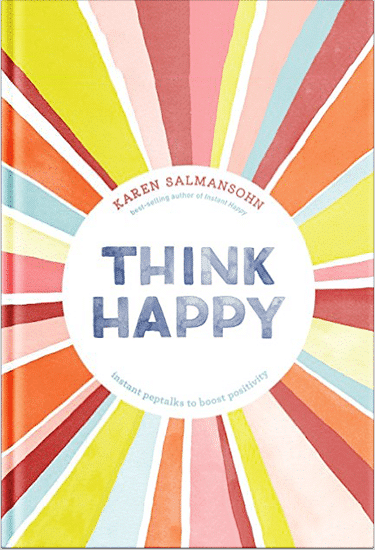 Discover the power of If-Then planning and learn how to use this effective technique to make sure you achieve your goals!
Discover the power of If-Then planning and learn how to use this effective technique to make sure you achieve your goals!
This is a guest post by Dr. Bruce Lawrie
When you set a goal, you make a really important first step towards achieving it. However, just setting a goal doesn’t guarantee that you’ll be successful. Even if you’re really determined and have a well-thought-out plan, sometimes things can happen that make it hard to reach your goals.
Fortunately, there’s a method that can help you manage these challenges and improve your chances of success. It’s called If-Then planning.
Why is If-Then Planning effective?
This technique helps you with your self-regulation skills. Meaning? When you’re faced with a challenging situation, it helps you to regulate your thoughts and emotions and gives you the added support needed to handle obstacles, strengthen our efforts, and improve your chances of reaching your goals.
Research shows If-Then planning is highly effective.
- People who use If-Then statements are 300% more likely to achieve their goals, as per Harvard Business Review (May 2014). A study by Professor Gollwitzer at New York University found that creating an If-Then plan could help overcome procrastination tendencies and achieve goals. Students who created an If-Then plan for writing a Christmas essay were more likely to meet their deadline than those without a plan.
- If-Then planning can also help us stick to our workout plans. For example, a study showed that people who made detailed If-Then statements such as “If it’s Monday, Wednesday, or Friday, then I will go to the gym” were 91% more likely to follow through with their exercise plans. In contrast, only 39% of participants followed through on more general statements like “I will go to the gym more often.” By making specific If-Then plans before activities requiring self-control, we can significantly improve our ability to carry them out.
If-Then Planning in action
The If-Then technique has two parts: IF and THEN.
- IF clarifies the critical cue that identifies potential challenges to your goal-oriented pursuits.
- THEN outlines the goal-directed response that instructs you on how to cope with these challenges.
If-Then planning’s two-part strategy enables you to recognize (the If-part) and manage situations (the Then-part) that could hinder your goal attainment and prevent you from reaching your goal.
By identifying your ability to act in advance, you don’t have to worry about where, when, and how to implement your management plan. You will tend to react automatically when the situational cue arises.
When you assign your behavior to a particular situation (If), you increase the possibility that you will implement the behavior (Then). Why? Because the thought of the behavior will automatically become highly accessible to you, when you find yourself in the specified situation.
If-Then statements create a link between an anticipated challenge (like skipping class) and your planned goal-attainment response (remember studying is vital for goal-attainment – then attend class!).
When faced with the If-part (the cue – skipping class), you can do the Then-part (remember, studying is essential for your goal-attainment—then attend class!). Basically, you’ll wind up responding more effectively, and with minimal conscious thought to achieve goal-attainment (keep learning).
If-Then planning’s structure helps you in many ways.
- Gives you a plan to support your goals
- Helps you to understand when, where, and how to do what you must do – no matter the obstacles
- Encourages you to identify and anticipate situations that can challenge your goals
- Motivates you to decide how to manage your challenges and support your goal-striving
Basically, If-Then plans help you to cope with potentially challenging situations by enabling you to foresee demands and pre-plan competent responses. With practice, these behaviors can transform into psychological habits that significantly improve your goal-attainment.
How to write your If-Then plan
- First, start by describing the challenging situation that could stop you from achieving your goal (If). Be specific and clear about what this situation or event is.
- Next, describe what you plan to do to manage the challenge (Then). This means outlining your goal-directed response to the identified situation. It’s important to be specific, realistic, and clear about what you plan to do.
- Finally, rehearse your If-Then plan until it becomes a habit, your automatic reaction to the specific situation. This means practicing your plan until it becomes second nature. With enough practice, your If-Then plan will become a habit, and you’ll be better equipped to manage potential challenges and reach your goals.
Some Examples of If-Then Planning
- If: I feel bored.
- Then: I will listen to music.
Or…
Or…
- If: If I want to skip exercise
- Then: Remember that exercise is vital for my health – and exercise
Or…
Or…
- If: I doubt my ability to succeed
- Then: I will recall my past successes
In summary…
If-Then Planning is a simple and effective technique that can help you manage your life and reach your goals. By creating specific plans to tackle potential challenges, you can train your brain to react automatically and increase your chances of success.
The best part is, it’s easy to use and can be done daily. With consistent practice, you can develop helpful habits and overcome obstacles. So, if you want a straightforward way to reach your goals, try If-Then Planning.
ABOUT THE WRITER: Dr. Lawrie is an internationally acclaimed specialist in Psychology and Mental Health and an International Sports Coach. He holds Masters and Doctor of Philosophy degrees in Psychology and is qualified in Clinical and Educational Psychology. With a special interest in Performance Psychology. His email is:
[email protected]
Get Support To Manage Anxiety
Explore my therapist recommended online course: The Anxiety Cure.
Think happier. Think calmer.
Think about subscribing for free weekly tools here.
No SPAM, ever! Read the Privacy Policy for more information.
One last step!
Please go to your inbox and click the confirmation link we just emailed you so you can start to get your free weekly NotSalmon Happiness Tools! Plus, you’ll immediately receive a chunklette of Karen’s bestselling Bounce Back Book!



 Discover the power of If-Then planning and learn how to use this effective technique to make sure you achieve your goals!
Discover the power of If-Then planning and learn how to use this effective technique to make sure you achieve your goals!